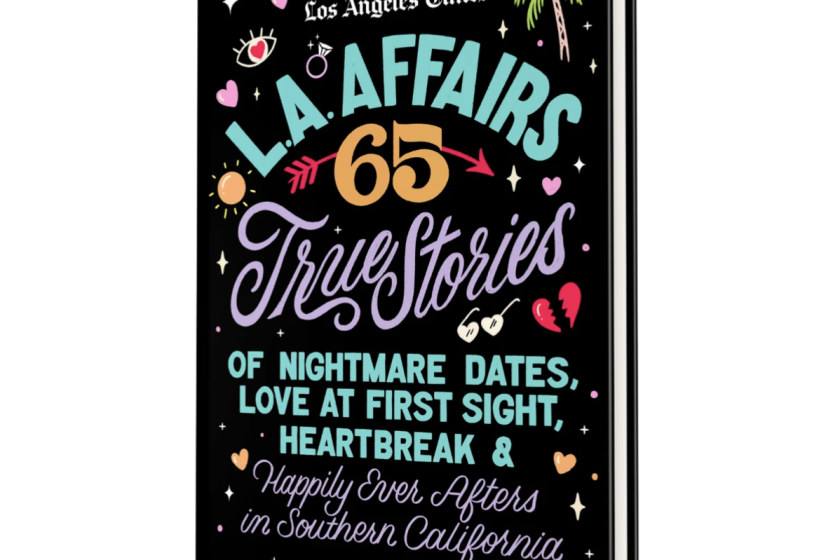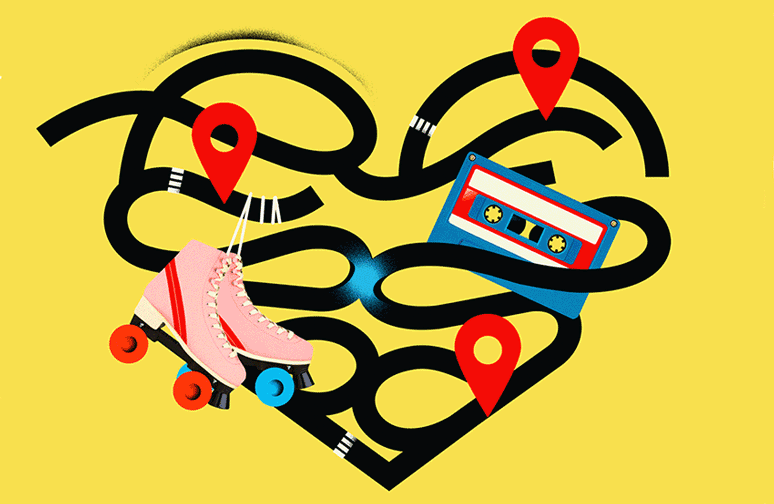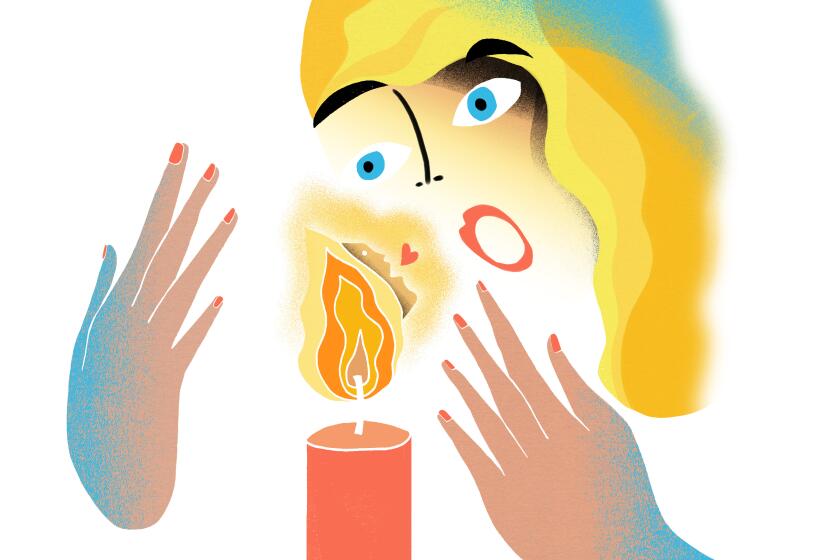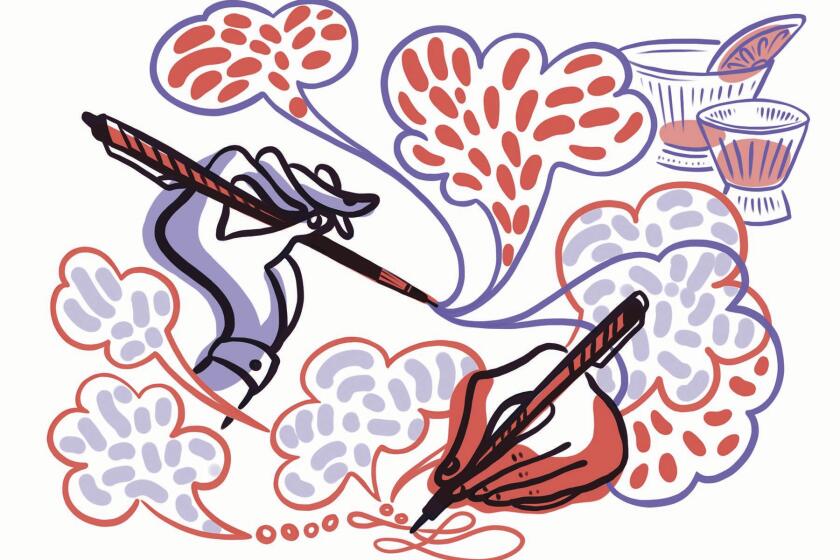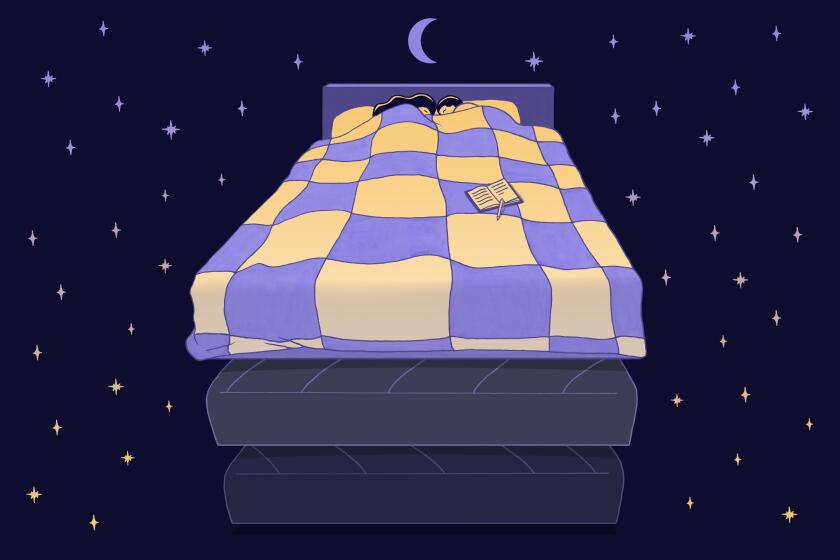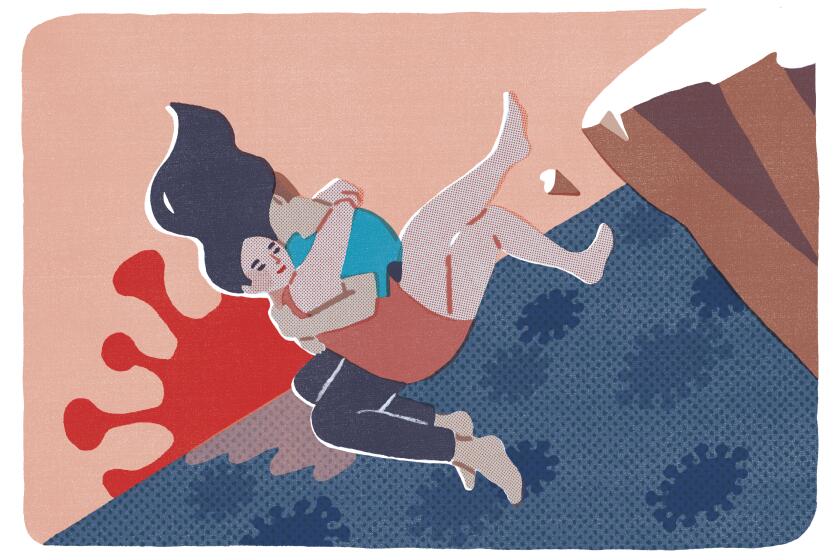L.A. Affairs: I’m a disabled woman. Is that a dating deal breaker?
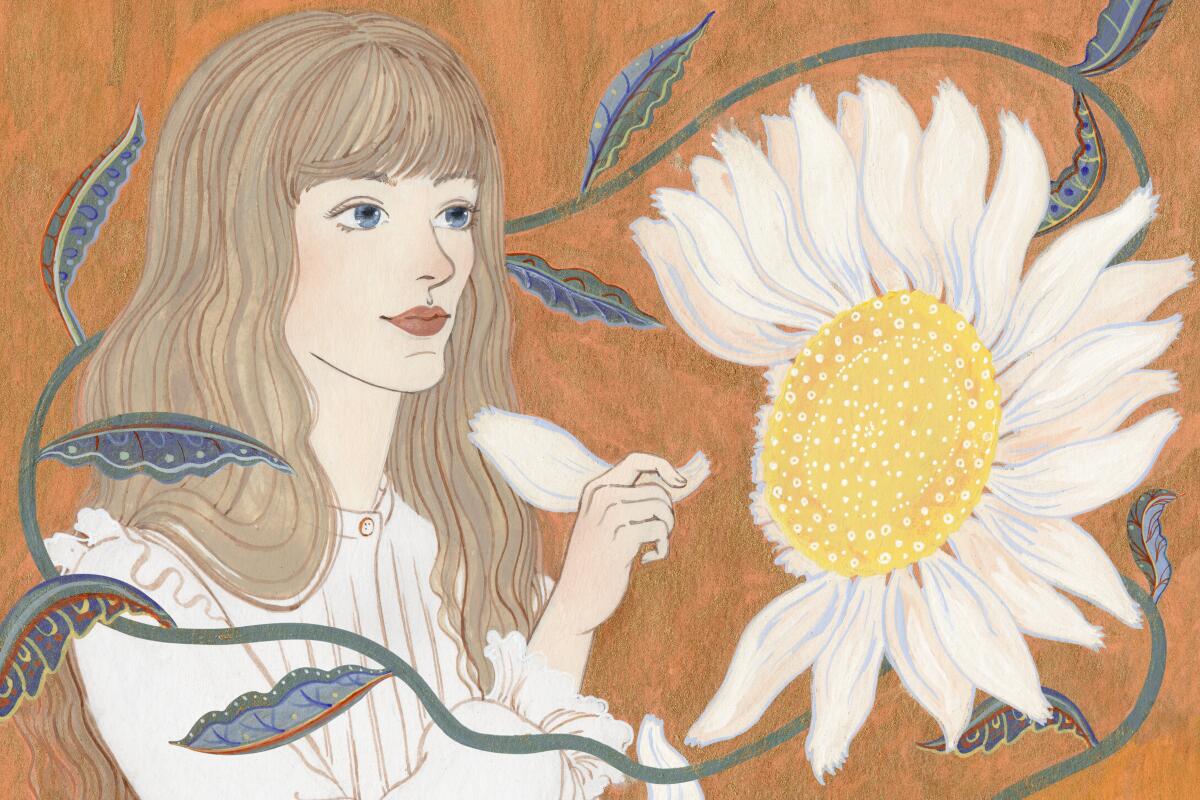
- Share via
I was 8 years old when a rupture in my brain stem left me in a wheelchair, unable to speak, partially paralyzed.
I needed emergency brain surgery and then years of therapy to learn to talk again and walk again.
Today, I’m very lucky. I have my own consulting business, but I walk with a limp and I have no mobility in my left hand. I’ve also never found love. I’m in my mid-30s and I’ve never had a boyfriend.
Featuring our favorite tales of searching for love in Southern California, curated from the beloved L.A. Affairs column.
I didn’t get to have my first kiss as a teenager. My first kiss was in my late 20s with a guy I met after a college basketball game. He never asked me for a dinner date, but he did invite me to his house for a few make-out sessions before it fizzled and I never heard from him again. I’ve been on every dating app possible. I’ve had office crushes. Once, I went out for happy hour drinks with a guy I’d worked with, and liked. And he proceeded to tell me all about the woman he’d started dating.
Guys always seem to want to hang out with me and talk to me. Yet none of these men ever try to move me out of the “friend zone.”
It’s hard not to take it personally. How often do we see fully able-bodied people dating individuals with disabilities on TV or film? In the media? Or in real life? Does having a limp really make that much of a difference when finding someone attractive?
Over the years, I wondered if we’d ever end up back in each other’s lives — romantically. Our biggest roadblock was always timing.
It wasn’t until I moved to Los Angeles from Washington, D.C. — from a place where politics dominate to a place where creatives write to better know themselves — that I found an answer.
It started when I hired an intimacy coach, because that’s apparently what one does in L.A.
I met her through a yoga studio in Santa Monica. My first to her email read — “I’ve never dated anyone; can you help? I think it has to be because of my physical disability.”
I told her my outcome.
I wanted to be someone’s girlfriend.
I felt super excited and nervous for my date with an ex-boyfriend, which surprised me — since he was dead.
And while that still hasn’t happened, in some ways I’ve achieved a far more important outcome — the realization that my disability itself wasn’t inhibiting my intimacy with men.
It was how I emotionally responded to having a disability that was getting in the way.
Over the course of my life, I have told hundreds of people about my brain injury. Typically, people respond to me with the usual sympathies — “Oh, I’m so sorry” — or embarrassed silence.
Recently, however, something changed. Something changed inside me.
A friend and I had finished dinner at Cecconi’s on Melrose when my friend struck up a conversation with a cute guy as they were standing near the valet. One thing led to another, and soon we were accompanying the cute guy — and his cute friend — up the street for drinks at Catch LA. Eventually, the topic of my disability came up (I don’t mind sharing it) and all the work it has taken me to overcome it. As I finished, I expected the usual reactions.
I was caught between feeling happy for her good fortune and feeling sorry for myself that I had not had such luck in romance. I continued to be single and swiping, while my Omama — German for grandmother — was falling lucky in love.
To my surprise, however, the man next to me loudly exclaimed, “Wow!” and asked with genuine admiration in his voice: “How did you do that!?”
After I absorbed my shock at his question, I had to quickly come up with an answer. No one had ever asked me this before. I took a breath and and responded, “Well, I just ‘alpha’d’ up and retaught myself to live.”
The words were no sooner out of my mouth than I realized what I’d said. Those words had so much more power to me than to him. (In fact, the conversation had moved on.)
But it was the first time I verbalized the crux of why I struggled with intimate relationships — I had been stuck in one energy pattern in my body.
Through my work with the intimacy coach, I had studied my ability to navigate between what most call (and I would argue we need to transcend calling) stereotypically masculine and feminine energies. Some call it our alpha and omega energies.
Adding an extra adult to the mix feels like I am disturbing all the perfectly balanced, precariously spinning plates of my life. Maybe having a boyfriend and a kid is just not possible after all.
From this vantage point, I could see that my childhood was a lesson in how to “alpha up” to protect myself from the hurts of the world. From the sting of a high-school friend predicting that I would never get married because “nobody marries someone with a disability” to the heartbreak of watching all of my friends get married when I was just longing to be kissed, I hardened up, I’d alpha’d up, because otherwise the pain of being perpetually single plus having a physical disability would have overcome me.
But Los Angeles has become a place where I’ve learned to keep that pain from overtaking me.
Through my inner healing, I’m finding ways to soften up, to open up, to make room for the possibility of letting someone in. The opposite of “alpha-ing” up.
This process hasn’t been pretty, or easy. I cried so many tears over a guy from San Diego. I’d met him a few years ago, when he was on a stay in D.C., when I was still living there. When I finally worked up the courage to tell him that I liked him, I got the “I think you’re great, but I just want to be friends” line. So we stayed friends, and when I moved to the West Coast, we began going out to dinner. Every week. This is it, I told myself. It’s finally happening. So I geared up to tell him: I wanted more. I wanted an intimate relationship with him. And then he told me he’d started seeing someone else.
He would say he didn’t know if things were going to last with his girlfriend. It kept me thinking, “What if they do break up and we have a real shot?”
As awful as that experience was, though, I took it as a positive sign. It showed my growth. I had been vulnerable enough to communicate a desire I had never communicated before — that I wanted to give someone else access to my body.
Moving forward, are there still going to be times where I’ll have to “alpha up” to get through a challenge? Absolutely. But I believe there has been a historical cost to all of that “bracing for the worst.” It prevented me from allowing someone to affect me to the core.
And I’m not going back to that.
Examples of able-bodied people dating disabled people like me may be few and far between in our culture at large. (When’s the last time you saw a TV show or film about a disabled women who had an actual sex life?) But now that I’ve found the voice that I’ve hidden for so many decades, I’m going to use it to change this narrative.
The author is the L.A.-based founder of CultureSmart, a consulting firm that helps start-ups create a workplace culture that embraces inclusion. You can find her on Instagram at @ecgoodson and on Medium.com.
L.A. Affairs chronicles the search for romantic love in all its glorious expressions in the L.A. area, and we want to hear your true story. We pay $300 for a published essay. Email [email protected]. You can find submission guidelines here. You can find past columns here.
More to Read
Sign up for The Wild
We’ll help you find the best places to hike, bike and run, as well as the perfect silent spots for meditation and yoga.
You may occasionally receive promotional content from the Los Angeles Times.
